Kay Ivey joins 18 Republican governors opposing proposed Project Labor Agreement rule
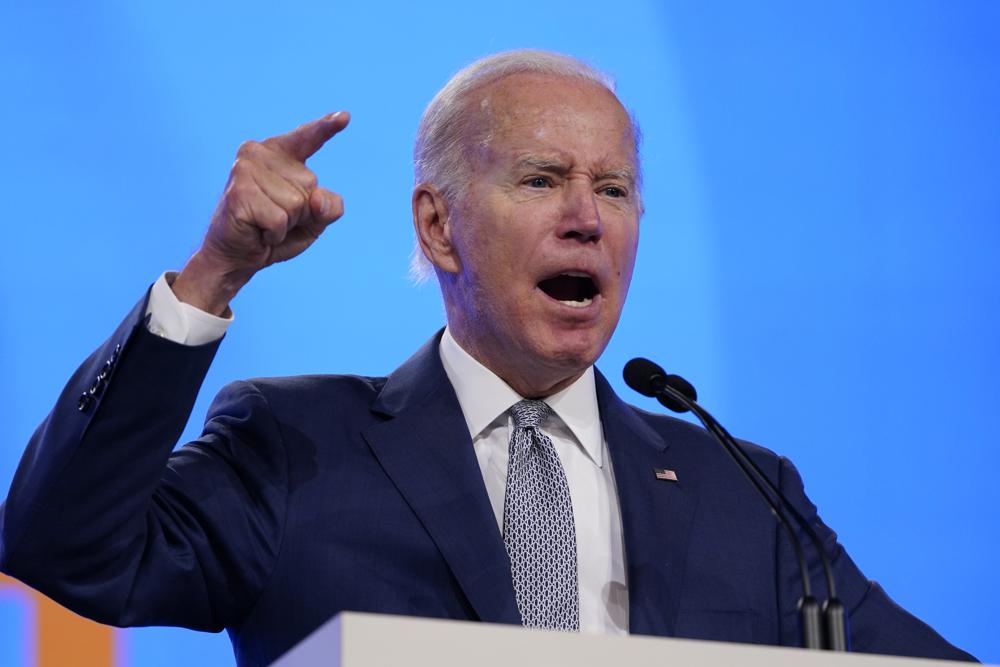
Nineteen Republican governors wrote a letter to President Joe Biden on October 17, 2022, opposing a proposed federal rule to mandate the use of Project Labor Agreements (PLAs) for federal construction projects. The letter was signed by governors from Arkansas, Alabama, Arizona, Georgia, Iowa, Massachusetts, Mississippi, Missouri, Nebraska, New Hampshire, North Dakota, Oklahoma, South Carolina, South Dakota, Tennessee, Texas, Utah, Virginia, and Wyoming. The proposed rule follows an executive order that was signed by Biden in February 2022 that aimed to require PLAs for large-scale construction projects. A group of Republican governors wrote a letter in April 2022 opposing the executive order, arguing that it granted a monopoly to unions and discouraged competition. The proposed rule would amend the Federal Acquisition Regulation (FAR) to implement the executive order and mandate the use of PLAs for federal construction contracts exceeding $35 million. Gov. Asa Hutchinson stated in a press release, “Labor unions have played an important role in our nation’s history, but the government’s role in business is to provide an avenue for success and not a roadblock.” Hutchinson continued, “I’m honored to have the support of 18 fellow governors from all corners of our nation as we seek to oppose this rule and support fairness for our states.” The proposed rule states, “The E.O. explains that the lack of coordination among various employers, or uncertainty about the employment terms and conditions of various groups of workers, can create friction and disputes in the absence of an agreed-upon resolution mechanism. PLAs may provide structure and stability needed to reduce uncertainties for all parties connected to a large-scale construction project.” The period for public comments on the proposed rule closed on October 18, 2022. Republished with the permission of The Center Square.
GOP governors to Joe Biden: Student loan plan will be costly for American taxpayers
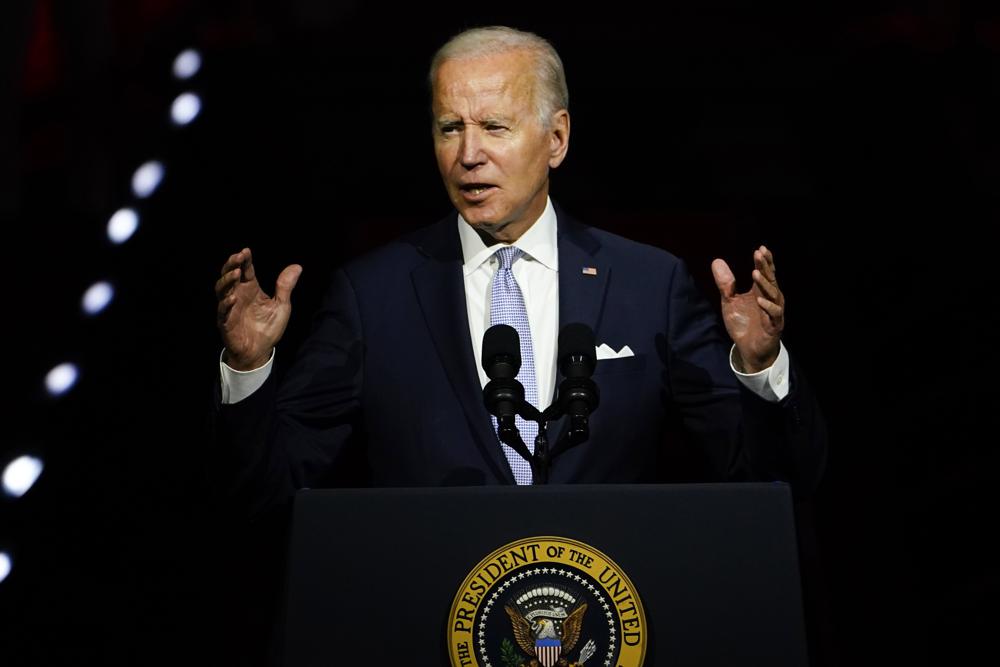
President Joe Biden’s student loan forgiveness plan will be costly for American taxpayers, a coalition of GOP governors said in a letter sent Monday to the White House. The letter, signed by 22 GOP governors, tells Biden to “withdraw” the plan, citing cost estimates of up to $600 billion, or $2,000 per American taxpayer. “As governors, we support making higher education more affordable and accessible for students in our states, but we fundamentally oppose your plan to force American taxpayers to pay off the student loan debt of an elite few,” the coalition wrote. The coalition includes Alabama Gov. Kay Ivey, Alaska Gov. Mike Dunleavy, Arizona Gov. Doug Ducey, Arkansas Gov. Asa Hutchinson, Florida Gov. Ron DeSantis, Georgia Gov. Brian Kemp, Idaho Gov. Brad Little, Iowa Gov. Kim Reynolds, Maryland Gov. Larry Hogan, Missouri Gov. Mike Parson, Montana Gov. Greg Gianforte, Nebraska Gov. Pete Ricketts, New Hampshire Gov. Chris Sununu, North Dakota Gov. Doug Burgum, Ohio Gov. Mike DeWine, Oklahoma Gov. Kevin Stitt, South Carolina Gov. Henry McMaster, South Dakota Gov. Kristi Noem, Tennessee Gov. Bill Lee, Texas Gov. Greg Abbott, Utah Gov. Spencer Cox, and Wyoming Gov. Mark Gordon. “At a time when inflation is sky high due to your unprecedented tax-and-spend agenda, your plan will encourage more student borrowing, incentivize higher tuition rates, and drive-up inflation even further, negatively impacting every American,” the governors added. Biden announced the plan last month during an address from the White House. “Many people – many people can’t qualify for a mortgage or buy a home because the debt they continue to carry,” Biden said. “A lot of folks are even putting off starting families because of the cost, and the dream of starting or owning your business is just way off in the distance with a debt that’s – that so many are saddled with.” The plan forgives $10,000 in federal student loan debt for those who make less than $125,000 annually, while federal Pell Grant recipients will be forgiven $20,000. The Committee for a Responsible Federal Budget has estimated that the plan’s total cost would be $440 to $600 billion. Republished with the permission of The Center Square.
Republican governors call Democrat spending bill “reckless”

Twenty-one Republican governors called the Inflation Reduction Act “another reckless tax and spending spree” in a joint statement released Thursday. The legislation, dubbed the “Democrats spending bill” by Republicans, would reduce the federal deficit, Senate Democrats said in a summary. But the $740 billion bill would hurt all Americans, the Republican governors said. “While denying recession, Democrats want to raise taxes on businesses and manufacturers, which will force higher costs onto consumers, worsen inflation, and aggravate shortages,” they said in the letter. “With sky-high prices at the pump, the last thing Americans need is for Democrats to punish energy producers, which will ultimately hurt working families struggling to pay for gas, goods, food, and utilities.” Democrats maintain the measure would reduce inflation by investing taxpayer dollars into domestic energy production and manufacturing and lowering carbon emissions by 40% by 2030. Republicans have maintained that Biden’s policies hindered energy production in the oil and gas industry, leading to record high gas prices this summer, which in part contributed to 40-year high inflation. They point to the president’s executive orders ending new leases for oil production on federal lands, ending the Keystone Pipeline construction, and other restrictions on the industry. Democrats say their bill also would allow Medicaid to negotiate prescription drug prices, something critics say will discourage investment in new treatments. The Affordable Care Act also would be extended for three years under Democrats’ plans. The bill also includes up to $7,500 in tax credits on the purchase of an electric or fuel cell vehicle made in America. Large corporations would be required to pay a minimum 15% tax, and the measure would not raise taxes on Americans making less than $400,000 a year, according to remarks by President Joe Biden. The joint statement opposing the Inflation Reduction Act was made by South Carolina Gov. Henry McMaster, Georgia Gov. Brian Kemp, Alabama Gov. Kay Ivey, Arizona Gov. Doug Ducey, Arkansas Gov. Asa Hutchinson, Florida Gov. Ron DeSantis, Idaho Gov. Brad Little, Indiana Gov. Eric Holcomb, Iowa Gov. Kim Reynolds, Mississippi Governor Tate Reeves, Missouri Gov Mike Parson, Montana Gov. Greg Gianforte, Nebraska Gov. Pete Ricketts, North Dakota Gov. Doug Burgum, New Hampshire Gov. Chris Sununu, Oklahoma Gov. Kevin Stitt, Tennessee Gov. Bill Lee, Texas Gov. Greg Abbott, Utah Gov. Spencer Cox, Virginia Gov. Glenn Younkin, and Wyoming Gov. Mark Gordon. Republished with the permission of The Center Square.
Stark political divides loom as U.S. governors gather

With stark political divides on abortion, gun violence, and other issues threatening to overshadow their meeting, the nation’s governors sought to find common ground — on other issues. The National Governors Association formally kicked off its summer gathering Thursday, the first in-person meeting since 2019, before the COVID-19 pandemic. It follows recent U.S. Supreme Court rulings that have deepened the rift between red and blue states by overturning Roe v. Wade and striking down gun restrictions in New York. Leaders say there’s still room for bipartisanship. “It’s about trying to find things that we can work on together, and that’s plentiful,” said Arkansas Gov. Asa Hutchinson, a Republican who is wrapping up his yearlong term as the association’s chair. Hutchinson is handing the reins of the group to Democratic Gov. Phil Murphy of New Jersey, who will serve as its next chair. The two governors last month announced a bipartisan task force to make recommendations on preventing mass shootings following the massacre at a Texas elementary school that killed 19 children and two teachers. The task force was announced before President Joe Biden signed into law a sweeping, bipartisan gun violence measure that includes billions in new funding for mental health and school safety. The task force is comprised of eight governors, equally divided between Republicans and Democrats. Hutchinson said he sees the group helping shepherd that law’s implementation at the state level. Republican Gov. Spencer Cox of Utah, a member of the task force, acknowledged that any change to gun policy would invite controversy in his state, yet he encourages politicians to listen to proposals from across the political spectrum, including funding for school security, counselors, gun buybacks and red flag laws. “I’ve asked everyone to be open to every conversation,” Cox, the association’s incoming vice chairman, said in a press conference last month. The public agenda at the event in Maine avoided any high-profile partisan issues. Sessions on Thursday featured Intel CEO Patrick Gelsinger and the leader of a global robotics competition for a discussion of computer science education. Another session focused on travel and tourism. The governors also held several other events, including a mixer Wednesday evening and a scheduled lobster bake Thursday evening. Security was tight with road closures and a large police presence. Organizers declined to say if there was a specific threat or concern. Nineteen governors, including the governor of Puerto Rico, attended the event. Missing were governors of several large states, including California Gov. Gavin Newsom, Texas Gov. Greg Abbott, New York Gov. Kathy Huchul, and Florida Gov. Ron DeSantis. Hutchinson said he doesn’t see the governors association addressing abortion following the reversal of Roe. That ruling has pitted states against each other, with “trigger” bans taking effect almost immediately after the ruling in a number of states. Republicans in some states are looking at ways to prevent women from going out of state for abortions, steps that could include going after abortion providers. In response, some Democratic governors have signed measures banning their state’s law enforcement agencies from enforcing other states’ abortion bans. That includes Democratic Gov. Janet Mills, who formally welcomed the governors to her state on Thursday. When she signed an executive order last week, Mills said she “will stand in the way of any effort to undermine, roll back or outright eliminate the right to safe and legal abortion in Maine.” Partisanship was underscored on the eve of the gathering as New Hampshire Gov. Chris Sununu campaigned alongside fellow Republican Paul LePage, a former Maine governor who hopes to unseat Mills. Newsom, the governor of California, has even run a campaign ad in Florida criticizing that state’s Republican leaders. And protesters supporting reproductive choice gathered outside an event some of the governors attended on the Portland waterfront. Nonetheless, Hutchinson said the group has been able to work together on other issues, being a voice for the states during the COVID-19 pandemic and during negotiations over the bipartisan infrastructure package. Massachusetts’ Republican Gov. Charlie Baker said the governors tend to get along with each other — and they tend to focus on things where they can get results instead of areas of disagreement. “While we will disagree on different issues, we as a group have much more in common than what sets us apart,” said Mills, the host governor. Hutchinson’s chairmanship of the group has elevated his national profile as he considers running for president in 2024. The two-term governor, who leaves office in January, has criticized former President Donald Trump and has urged fellow Republicans to move on from the 2020 election. Murphy is coming into the chairmanship after narrowly winning reelection as governor last year. An unapologetic progressive, he recently signed legislation enshrining abortion rights into law and a new package of gun control bills. Even though they’re at opposite ends of the political spectrum, Hutchinson had words of praise for his successor. “Part of being a human being is that you recognize good quality that you see in people, even though we disagree fundamentally, and you’re on a different team. I think that’s needed in America today,” he said. Republished with the permission of The Associated Press.
Governors pan SEC climate disclosure proposal as unprecedented federal overreach
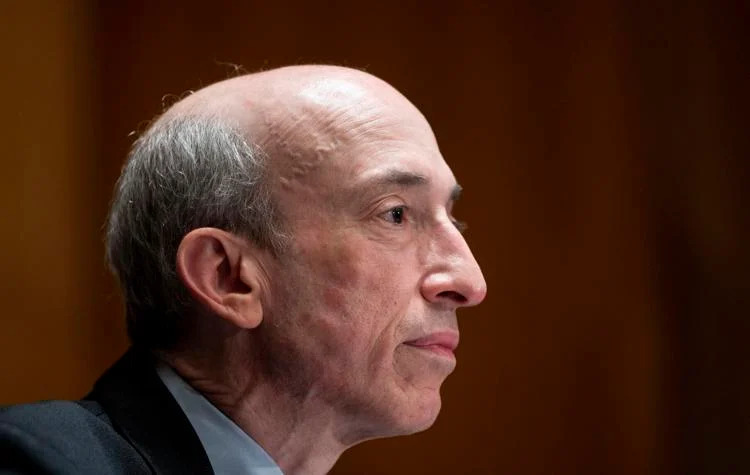
Sixteen Republican governors are asking the Biden administration to withdraw a proposed rule by the U.S. Securities and Exchange Commission that would require companies to disclose some climate-related investment information in annual reports and registration. The governors called the move an “unprecedented level of federal overreach” in a letter sent Tuesday to President Joe Biden and SEC Commissioner Gary Gensler. “The proposed rule will harm businesses and investors in our states by increasing compliance costs and by larding disclosure statements with uncertain and immaterial information that the federal government – let alone the SEC – is not equipped to judge,” the governors said in their letter. The governors said it’s OK for companies to disclose the information voluntarily. “However, since climate change models vary dramatically, the notion of evaluating investment risk based on such uncertain variables is inherently subjective and unreliable,” they wrote. “Moreover, such disclosures would serve to confuse investors as to how to judge true financial risk, significantly reducing market efficiency. It is precisely the type of question where government should not impose its own judgments of what constitutes material risk in place of managers.” The rule “appears part of an ongoing effort across the federal government to penalize companies involved in traditional energy development,” the governors said. “Until recently, the Biden administration explicitly refused to issue new oil and gas leases on federal lands and is now considering only a fraction of the lands that should be available,” they wrote. “In addition, the Council on Environmental Quality is rolling back reforms to the environmental review process, the President has denied key pipeline and other permitting applications, and officials throughout the Biden Administration are rhetorically discouraging investment in oil and gas development.” SEC officials said companies are interested in climate-related information. “The results of multiple recent surveys indicate that climate risks are among the most important priorities for a broad set of large asset managers,” the SEC said in its 140-page report. “PWC reported in their Annual Global CEO Survey that in 2016, only 39% of asset and wealth management CEOs reported that they were concerned about the threats posed by physical risks brought about by climate change, whereas this figure increased to 70% in 2021.” The SEC extended the comment period on the proposed rule from May 20 to June 17. The commission is accepting electronic comments. The letter is signed by Kay Ivey of Alabama, Mike Dunleavy of Alaska, Doug Ducey of Arizona, Asa Hutchinson of Arkansas, Brad Little of Idaho, Kim Reynolds of Iowa, Tate Reeves of Mississippi, Mike Parson of Missouri, Greg Gianforte of Montana, Pete Ricketts of Nebraska, Doug Burgum of North Dakota, Kevin Stitt of Oklahoma, Kristi Noem of South Dakota, Greg Abbott of Texas, Spencer Cox of Utah and Mark Gordon of Wyoming. Republished with the permission of The Center Square.
Kay Ivey signs on to joint U.S.-Canada letter in support of protesting truck drivers

Governor Kay Ivey, along with 15 other governors, has signed on to a letter to Prime Minister Justin Trudeau and President Joe Biden asking them to immediately reinstate the vaccine and quarantine exemptions available to cross border truck drivers. Since late January, Canadian truckers have blocked some of the busiest border crossings between Canada and the U.S. The demonstrations initially focused on Canada’s vaccine requirement for truckers entering the country but quickly became a broad attack on COVID-19 precautions and Trudeau himself. Demonstrations and blockades have shut down border crossings into the U.S. and inflicted economic damage on both countries. Ivey stated on Twitter, “The truck drivers we’ve seen peacefully protesting in Canada simply want common sense reinstated & freedoms protected. I support them and am joining my fellow governors in calling Prime Minister Trudeau & @POTUS to immediately allow exemptions for cross border truck drivers. These types of unnecessary mandates would continue to exacerbate supply chain and economic issues.” The letter emphasizes the need for the border to remain open because of COVID-19 supply chain issues. The letter states, “The timing of your decision to terminate the vaccine and quarantine exemptions could not have been worse, as North America already faces grave supply chain constraints. These constraints, combined with increasing inflation, place significant burdens on the residents of Canada and the United States. Furthermore, transportation associations have informed us that the lack of exemptions will force thousands of drivers out of the trucking industry, which is already facing a significant workforce shortage. The removal of these exemptions is ultimately unnecessary, and we cannot afford to lose any more truck drivers who transport food and other vital supplies across the border.” Last week, the White House stated, “The two leaders agreed that the actions of the individuals who are obstructing travel and commerce between our two countries are having significant direct impacts on citizens’ lives and livelihoods.” Other governors who signed the letter include Greg Gianforte (MT), Mike Dunleavy (AK), Asa Hutchinson (AR), Brian Kemp (GA), Brad Little (ID), Kim Reynolds (IA), Tate Reeves (MS), Mike Parson (MO), Pete Ricketts (NE), Doug Burgum (ND), Henry McMaster (SC), Kristi Noem (SD), Bill Lee (TN), Spencer Cox (UT), and Mark Gordon (WY).
Kay Ivey backs SCOTUS case that could overturn Roe v Wade
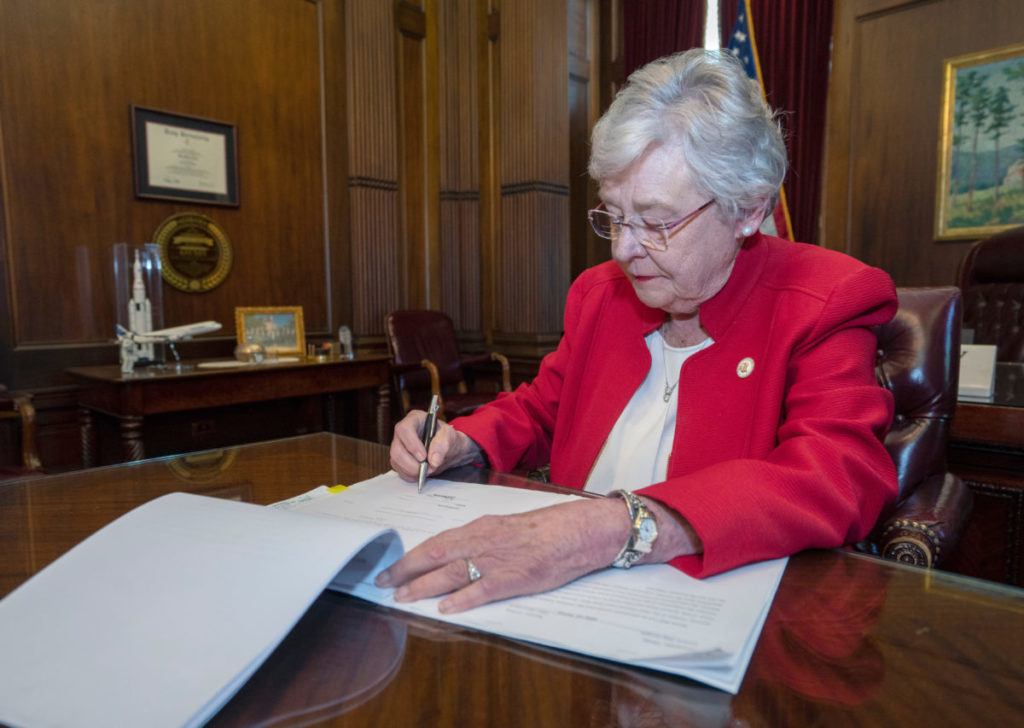
Gov. Kay Ivey has joined 11 other Republican governors in asking the U.S. Supreme Court to overturn the Roe v. Wade abortion-rights decision, Al.com reported. Governor Henry McMaster led the group by filing an amicus brief that questions whether all pre-viability prohibitions on elective abortions are unconstitutional in regards to Dobbs v. Jackson Women’s Health Organization. The case is pending at the U.S. Supreme Court and involves a challenge to a Mississippi law banning abortion after 15 weeks of pregnancy. In a brief filed Thursday, the governors joined Mississippi’s argument that the 14th Amendment does not include the right to abortion and that the rulings in Roe v. Wade and Planned Parenthood v. Casey upset the constitutional balance between states and the federal government. Kay Ivey said in a press release, “Alabama will continue to fight for life so that every unborn child is protected. We must stand strong for those babies who do not have a voice, and I assure my fellow Alabamians that we will continue this fight until they are protected once and for all. We will not rest until Roe v. Wade is overturned.” In May 2019, Alabama passed one of the most restrictive abortion laws. House Bill 314 established the personhood of the baby in the womb and criminalized surgical abortions as soon as a pregnancy can be medically determined, in almost all cases except if a doctor determines that the pregnancy poses a serious health risk to the mother. In October 2019, U.S. District Judge Myron Thompson issued a preliminary injunction temporarily blocking Alabama from enforcing the law that would make performing an abortion a felony in almost all cases. “Alabama’s abortion ban contravenes clear Supreme Court precedent,” Thompson wrote in an accompanying opinion. “It violates the right of an individual to privacy, to make choices central to personal dignity and autonomy. It diminishes the capacity of women to act in society and to make reproductive decisions. It defies the United States Constitution.” Reproductive rights activists criticized the governor’s inclusion on the Supreme Court brief. If Roe v. Wade were overturned, experts speculate that it could mean an almost immediate ban on all abortions in the state. Planned Parenthood Southeast Advocates commented on Twitter, “What we’re witnessing right now is a full-scale assault on patients, their health care providers, and their support systems. This isn’t about protecting families and this is not what the American people want. The data is clear: 80% of people in this country support access to a safe, legal abortion.” Other governors who joined McMaster’s brief include Doug Ducey of Arizona, Asa Hutchinson of Arkansas, Ron DeSantis of Florida, Brian K. Kemp of Georgia, Brad Little of Idaho, Kim Reynolds of Iowa, Michael L. Parson of Missouri, Greg Gianforte of Montana, Kevin Stitt of Oklahoma, and Greg Abbott of Texas.
Pfizer to discuss vaccine booster with U.S. officials Monday

Pfizer says it plans to meet with top U.S. health officials Monday to discuss the drugmaker’s request for federal authorization of a third dose of its COVID-19 vaccine as President Joe Biden’s chief medical adviser acknowledged that “it is entirely conceivable, maybe likely” that booster shots will be needed. The company said it was scheduled to have the meeting with the Food and Drug Administration and other officials Monday, days after Pfizer asserted that booster shots would be needed within 12 months. Pfizer’s Dr. Mikael Dolsten told The Associated Press last week that early data from the company’s booster study suggests people’s antibody levels jump five- to 10-fold after a third dose, compared to their second dose months earlier — evidence it believes supports the need for a booster. On Sunday, Dr. Anthony Fauci didn’t rule out the possibility but said it was too soon for the government to recommend another shot. He said the Centers for Disease Control and Prevention and the FDA did the right thing last week by pushing back against Pfizer’s assertion with their statement that they did not view booster shots as necessary “at this time.” Fauci said clinical studies and laboratory data have yet to fully bear out the need for a booster to the current two-shot Pfizer and Moderna vaccines or the one-shot Johnson & Johnson regimen. “Right now, given the data and the information we have, we do not need to give people a third shot,” he said. “That doesn’t mean we stop there. … There are studies being done now ongoing as we speak about looking at the feasibility about if and when we should be boosting people.” He said it was quite possible in the coming months “as data evolves” that the government may urge a booster based on such factors as age and underlying medical conditions. “Certainly it is entirely conceivable, maybe likely at some time, we will need a boost,″ Fauci said. Monday’s planned meeting between Pfizer and U.S. health officials was first reported by The Washington Post. Currently, only about 48% of the U.S. population is fully vaccinated. Some parts of the country have far lower immunization rates, and in those places, the delta variant is surging. Last week, Dr. Rochelle Walensky, the CDC director, said that’s leading to “two truths” — highly immunized swaths of America are getting back to normal while hospitalizations are rising in other places. Fauci said it was inexplicable that some Americans are so resistant to getting a vaccine when scientific data show how effective it is in staving off COVID-19 infections and hospitalizations, and he was dismayed by efforts to block making vaccinations more accessible, such as Biden’s suggestion of door-to-door outreach. Gov. Asa Hutchinson, R-Ark., agreed Sunday that there is vaccine resistance in Southern and rural states like his because “you have that more conservative approach, skepticism about government.” Describing his efforts to boost vaccinations in his state, which is seeing rising infections, Hutchinson said, “no one wants an agent knocking on a door,” but “we do want those that do not have access otherwise to make sure they know about it.” The grassroots component of the federal vaccination campaign has been in operation since April when supplies of shots began outpacing demand. It was outlined and funded by Congress in the $1.9 trillion COVID-19 relief bill passed in March and overwhelmingly is carried out by local officials and private-sector workers, and volunteers. Rep. Adam Kinzinger, R-Ill., blasted opposition to vaccination efforts from some GOP lawmakers as “absolute insanity.” He said House Republican leader Kevin McCarthy of California and others in the party need to speak out against “these absolute clown politicians playing on your vaccine fears for their own selfish gain.” Fauci appeared on CNN’s “State of the Union,” ABC’s “This Week,” and CBS’ “Face the Nation”; Hutchinson spoke on ABC, and Kinzinger was on CNN. Republished with the permission of the Associated Press.
Kay Ivey wants Joe Biden to prioritize getting states 2020 Census data

Gov. Kay Ivey and fourteen other governors wrote a joint letter to Secretary of Commerce Gina Raimondo urging a swift release of the census redistricting information. The letter addresses the main issue: the delay in releasing the data has made state legislatures unable to redraw district lines before the 2022 election cycle. The letter stated, “While we recognize the difficulties associated with completing a decennial census amid a pandemic, the ongoing delay in the release of 2020 Census redistricting data places our states in a nearly impossible situation to redraw lines prior to the 2022 election cycle. Consequently, we urge you to release redistricting data this month or as soon as possible prior to the delayed release date of September 30, 2021, and the release of the “legacy format” data on August 16, 2021.” The 2020 Census became a challenge to complete during the pandemic. In July 2020, Ivey warned the state’s current participation rate was 59.8%, or two percentage points behind the national average. At the time, Alabama was in danger of losing House seats because of a lack of participation. On Twitter, Ivey commented, “The stakes were high for Alabama in the #2020Census, and because of our efforts on the local and state levels, we succeeded. I’m proud to join fellow governors in urging the Biden Administration to not further delay the release of the redistricting data.” The stakes were high for Alabama in the #2020Census, and because of our efforts on the local and state levels, we succeeded. I’m proud to join fellow governors in urging the Biden Administration to not further delay the release of the redistricting data. #alpolitics @SecRaimondo pic.twitter.com/oMxsIodsoK — Governor Kay Ivey (@GovernorKayIvey) June 22, 2021 The letter continued, “Districts for the U.S. House of Representatives cannot be drawn until the data has been released. Districts for state legislatures also cannot be drawn until this data has been released. Districts for county, parish, township and municipal governing bodies cannot be drawn until states have had the opportunity to draw congressional and state legislative districts. Lastly, districts for school district seats cannot be drawn until county, parish, township, and municipal governing bodies have had the opportunity to draw their own respective districts. As a result of such negative impacts to our constitutional responsibilities, we seek the release of redistricting data as soon as possible—and in line with traditional timelines—so that states may begin to perform important redistricting tasks on behalf of our constituents.” Other governors signing the letter were Asa Hutchinson (AR), Brian Kemp (GA), Ron DeSantis (FL), Doug Ducey (AZ), Kim Reynolds (IA), Mike Parson (MO), Pete Ricketts (NE), Greg Gianforte (MT), Mike DeWine (OH), Henry McMaster (SC), Bill Lee (TN), Greg Abbott (TX), and Mark Gordon (WY), Doug Burgum (ND).
Kay Ivey joins 19 other governors urging action at the U.S. border
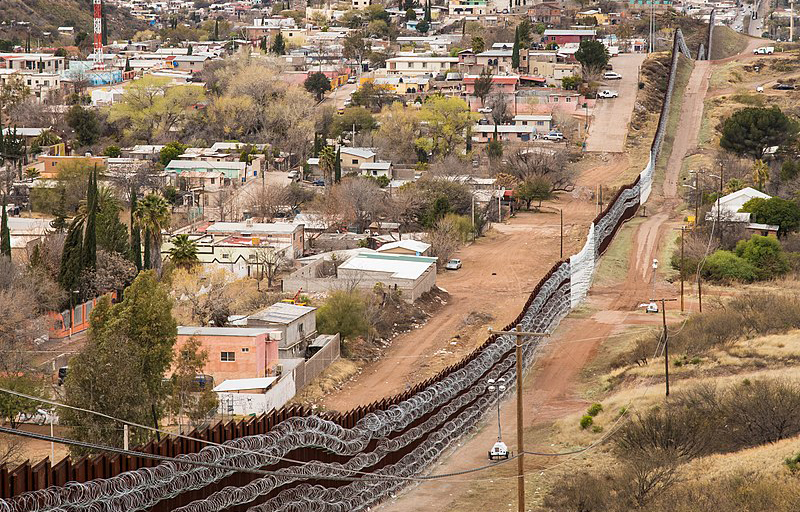
Today Gov. Kay Ivey joined 19 other governors in a call for Joe Biden to take action and reverse their policies regarding the U.S. border. The group wrote a letter to President Biden and Vice-President Kamala Harris describing worsening conditions at the border. In April, Arizona’s governor Doug Ducey declared a state of emergency at the southern border and deployed the Arizona National Guard to support law enforcement agencies in border regions. In May, the Associated Press reported that the State Emergency Council voted to allocate approximately $2.5 million to help pay for the deployment of 250 National Guard personnel to free up law enforcement officers in border towns along the Arizona-Mexico border. Part of the letter states, “This Administration has enticed a rush of migrants to our border and incentivized an influx of illegalcrossings by using irresponsible rhetoric and reversing a slew of policies—from halting border wall construction to eliminating asylum agreements to refusing to enforce immigration laws.” The letter concluded, stating, “At a time when our country is trying to recover from a once-in-a-generation pandemic, the last thing weneed is a self-created crisis that exploits families, undermines public safety, and threatens our national security. We urge you to take action to end the humanitarian crisis and secure our southern border immediately.” Gov. Ivey stated on Twitter, “I’m proud to sign on to this letter with fellow governors urging @POTUS & @VP to take immediate action on the crisis happening at America’s southern border. The crisis is too big to ignore & is now spilling over the border of all of our states.” I’m proud to sign on to this letter with fellow governors urging @POTUS & @VP to take immediate action on the crisis happening at America’s southern border. The crisis is too big to ignore & is now spilling over the border of all of our states. #alpolitics @WhiteHouse pic.twitter.com/lyX6AQsyaE — Governor Kay Ivey (@GovernorKayIvey) May 11, 2021 Other governors who signed the letter are Governors Bill Lee, Tennessee; Doug Ducey, Arizona; Asa Hutchinson, Arkansas; Brian Kemp, Georgia; Brad Little, Idaho; Eric Holcomb, Indiana; Kim Reynolds, Iowa; Tate Reeves, Mississippi; Mike Parson, Missouri; Greg Gianforte, Montana; Pete Ricketts, Nebraska; Chris Sununu, New Hampshire; Doug Burgum, North Dakota; Kevin Stitt, Oklahoma; Henry McMaster, South Carolina; Kristi Noem, South Dakota; Greg Abbott, Texas; Spencer Cox, Utah; and Mark Gordon, Wyoming.
Donald Trump tweets words ‘he won’; says vote rigged, not conceding

President Donald Trump worked to take back an apparent acknowledgment that Joe Biden won the White House and was making clear he would keep trying to overturn the election result. Trump’s earlier comments Sunday had given some critics and supporters hope that the White House was ready to begin working on a transition with Biden’s team. Not so fast, Trump soon assured. Trump, without using Biden’s name, said that “He won” as part of a tweet that made baseless claims about a “rigged” election. But as the Republican president saw how his comments were being interpreted as his first public acknowledgment of a Biden victory, he quickly reversed course. “He only won in the eyes of the FAKE NEWS MEDIA,” Trump subsequently tweeted. “I concede NOTHING! We have a long way to go. This was a RIGGED ELECTION!” There was no widespread fraud in the 2020 election. In fact, election officials from both political parties stated publicly that the election went well, and international observers confirmed there were no serious irregularities. Trump’s campaign has tried to mount legal challenges across the country, but many of the lawsuits have been thrown out and none has included any evidence that the outcome might be reversed. Biden, a Democrat, defeated Trump by winning back a trio of battleground states: Michigan, Wisconsin and Pennsylvania, and topped the 270 electoral vote threshold to clinch the presidency. Biden so far has 78.8 million votes, the most ever by a winning candidate, to Trump’s 73.1 million. “If the president’s prepared to begin to recognize that reality, that’s positive,” Biden’s incoming chief of staff, Ron Klain, told NBC’s “Meet the Press.” Still, Klain said, “Donald Trump’s Twitter feed doesn’t make Joe Biden president or not president. The American people did that.” A Republican governor, Arkansas’ Asa Hutchinson, said “it was good, actually” to see Trump’s tweet that Biden won. “I think that’s the start of an acknowledgment. … We want to make sure that there is a smooth transition,” Hutchinson said on NBC. Nearly two weeks after Election Day, Trump has neither called Biden nor made a formal concession, and White House officials have insisted that they are preparing for a second term. Former President Barack Obama, in an interview conducted and aired Sunday on CBS’ “60 Minutes,” said he would remind Trump that, as president, he is a public servant and a temporary occupant of the office. “And when your time is up then it is your job to put the country first and think beyond your own ego, and your own interests, and your own disappointments,” Obama said. “My advice to President Trump is, if you want at this late stage in the game to be remembered as somebody who put country first, it’s time for you to do the same thing.” Obama also criticized those Republicans going along with Trump’s false claims of widespread voter fraud. “I’m more troubled by the fact that other Republican officials who clearly know better are going along with this, are humoring him in this fashion. It is one more step in delegitimizing not just the incoming Biden administration, but democracy generally. And that’s a dangerous path,” he said. In recent days, Trump appeared to be inching closer to acknowledging the reality of his loss. In comments Friday in the Rose Garden about a coronavirus vaccine, Trump said his administration would “not be going to a lockdown” to slow the spread of COVID-19, and added that “whatever happens in the future, who knows which administration it will be? I guess time will tell.” Trump on Sunday renewed his groundless attacks on an election technology firm, Dominion Voting Systems, without evidence of any serious irregularities. Dominion has said it “denies claims about any vote switching or alleged software issues with our voting systems.” The Cybersecurity & Infrastructure Security Agency, a federal agency that oversees U.S. election security, said in a statement last week that the “November 3rd election was the most secure in American history.” The agency said, ”There is no evidence that any voting system deleted or lost votes, changed votes, or was in any way compromised.” John Bolton, a former Trump national security adviser, said it was important for Republican Party leaders to explain to voters that Trump did lose and that his claims of election fraud are baseless. Bolton left the administration last year. He says he resigned; Trump says he fired Bolton. “I think as every day goes by, it’s clearer and clearer there isn’t any evidence. But if the Republican voters are only hearing Donald Trump’s misrepresentations, it’s not surprising that they believe it,” Bolton said on ABC’s “This Week.” “It’s critical for other Republican leaders to stand up and explain what actually happened. Donald Trump lost what by any evidence we have so far was a free and fair election.” Having none of that was Rudy Giuliani, the president’s personal attorney who is helping lead Trump’s national legal front on the election challenge. In a television appearance that Trump previewed on Twitter after his morning tweets, Giuliani denied Trump was conceding — “No, no, no, far from it.” “I guess,” Giuliani told Fox News Channel’s ”Sunday Morning Futures,” “you would call it sarcastic.” Republished with the permission of the Associated Press.
Former rivals, military leaders, actors to take stage at RNC

Former presidential candidates Ted Cruz, Chris Christie, Scott Walker and Marco Rubio — the latter by video link — are among those set to speak at the Republican National Convention in Cleveland. Military leaders, members of Congress, actors, faith leaders and family members of presumptive presidential nominee Donald Trump are also set to speak in what the Republican National Committee calls “an unconventional lineup” that will challenge the status quo and press for Trump’s agenda. Speaker highlights at the four-day convention, which begins Monday at the Quicken Loans Arena. MONDAY Theme: Make America Safe Again Headliners: Trump’s wife, Melania; Lt. Gen. (ret.) Michael Flynn, U.S. Army; Sen. Joni Ernst, R-Iowa; and Rep. Ryan Zinke, R-Mont. Others: Willie Robertson, star of “Duck Dynasty”; former Texas Gov. Rick Perry; Marcus Luttrell, retired U.S. Navy SEAL; Scott Baio, actor; Pat Smith, mother of Sean Smith, killed in the 2012 attacks in Benghazi, Libya; Mark “Oz” Geist, member of a security team that fought in Benghazi; John Tiegen, member of Benghazi security team and co-author of the book “13 Hours,” an account of the attacks; Kent Terry and Kelly Terry-Willis, siblings of Brian Terry, a Border Patrol agent whose shooting death revealed the botched “Fast and Furious” gun-smuggling operation; Antonio Sabato Jr., actor; Mary Ann Mendoza, Sabine Durden and Jamiel Shaw, immigration reform advocates; Rep. Michael McCaul, R-Texas; David Clarke, sheriff of Milwaukee County, Wis.; Rep. Sean Duffy, R-Wis.; Rachel Campos-Duffy, LIBRE Initiative for Hispanic economic empowerment; Darryl Glenn, Senate candidate in Colorado; Sen. Tom Cotton, R-Ark.; Karen Vaughn, mother of a U.S. Navy SEAL killed in Afghanistan; Sen. Jeff Sessions, R-Ala.; former New York Mayor Rudy Giuliani; and Jason Beardsley of Concerned Veterans for America. ___ TUESDAY Theme: Make America Work Again Headliners: Tiffany Trump, candidate’s daughter; Kerry Woolard, general manager, Trump Winery in Virginia; Donald Trump Jr.; Sen. Shelley Moore Capito, R-W.Va.; former GOP presidential candidate Ben Carson; and actress Kimberlin Brown. Others: Sharon Day, co-chairwoman of Republican National Committee; Dana White, president, Ultimate Fighting Championship; Arkansas Gov. Asa Hutchinson; Arkansas Attorney General Leslie Rutledge; former U.S. Attorney General Michael Mukasey; Andy Wist, founder of Standard Waterproofing Co.; Sen. Ron Johnson, R-Wis.; Chris Cox, executive director, NRA Institute for Legislative Action; golfer Natalie Gulbis; Senate Majority Leader Mitch McConnell, R-Ky.; House Speaker Paul Ryan, R-Wis.; House Majority Leader Kevin McCarthy, R-Calif.; New Jersey Gov. Chris Christie. ___ WEDNESDAY Theme: Make America First Again Headliners: Former presidential candidates Ted Cruz and Marco Rubio; Eric Trump, son of the candidate; former House Speaker Newt Gingrich; and Indiana Gov. Mike Pence, Trump’s pick to be vice president. Others: radio host Laura Ingraham; Phil Ruffin, businessman with interests in real estate, lodging, manufacturing and energy; Florida Attorney General Pam Bondi; retired astronaut Eileen Collins; Michelle Van Etten, small business owner; Kentucky state Sen. Ralph Alvarado Jr.; Darrell Scott, senior pastor and co-founder of New Spirit Revival Center Ministries, Cleveland; Harold Hamm, oil executive; Wisconsin Gov. Scott Walker; Lynne Patton, vice president, Eric Trump Foundation; Sen. Marco Rubio, R-Fla. (by video); Sen. Ted Cruz, R-Texas; Callista Gingrich, wife of Newt Gingrich. ___ THURSDAY Theme: Make America One Again Headliners: Peter Thiel, co-founder PayPal; Tom Barrack, CEO of Colony Capital; Ivanka Trump, daughter of the candidate; and Donald Trump, GOP nominee for president. Others: Brock Mealer, motivational speaker; Rep. Marsha Blackburn, R-Tenn.; Oklahoma Gov. Mary Fallin; Dr. Lisa Shin, owner of Los Alamos Family Eyecare in New Mexico; RNC Chairman Reince Priebus; Jerry Falwell Jr., president of Liberty University and evangelical leader. Republished with permission of the Associated Press.


